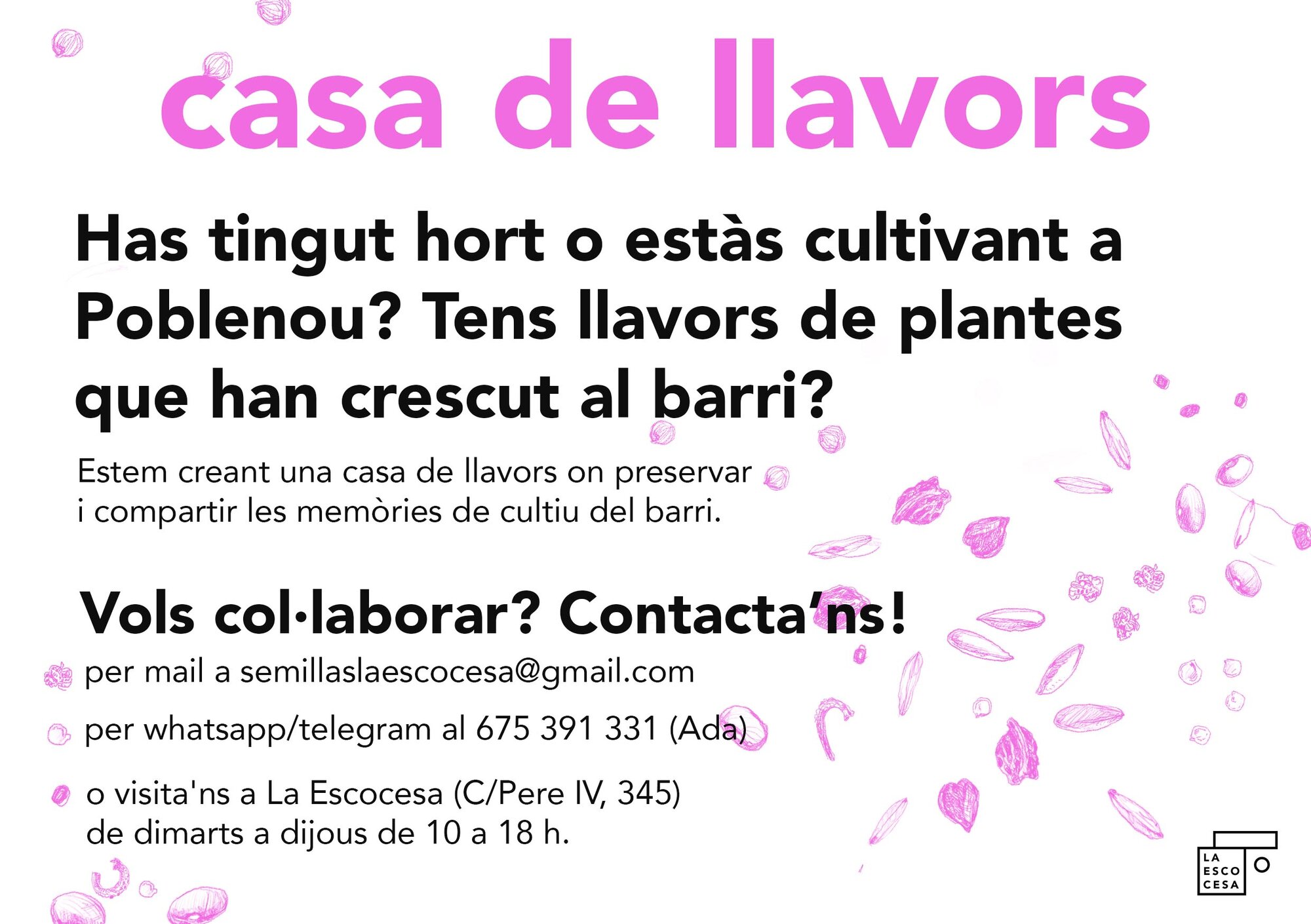seed house
a seedbed of practices and knowledge
Casa de semillas, “Seed house”, is a project of La Escocesa that seeks, on the one hand, to recover, preserve and disseminate the plant diversity of the neighborhood, and on the other hand, to create new conditions for the dissemination and exchange of knowledge linked to the care of plants and people, to network through seeds. It is a project that recalls the Poblenou of the not so distant past, where rows of tomato plants in self-managed fields were commonplace. Where will their seeds be? Where do the people of the neighborhood sow and cultivate now?
Each exchange of seeds is at the same time an exchange of knowledge, knowledge that we bring from our territories of origin and those of our ancestors. Saving seeds and sowing them is not only preserving plant genetic diversity, it is at the same time preserving human culture and customs that are inseparably related to the life and development of plants. It is also an act of sensitive and powerful resistance to the oppression and violence of the colonial and capitalist extractivist system.
Seeds often make, as Maria Sanchez says, awaken the link through a synapse that was thought to be dormant1. Sowing and preserving seeds not only maintains the life cycle of plants; it creates a seedbed of non-hegemonic, collective, rebellious knowledge, a seedbed of individual and collective healing, of mutual aid, of accessible and free food sovereignty.
Knowledge is equally in the seed itself. This tiny being is a bearer of the memory of the plant from which it comes, of the soil that nourished it, of the climate that gave birth to it. That is why in each envelope where we keep the seeds we write down the place and time of their collection. In Casa de semillas we opt for the ecological seeds free of intellectual property and not patented; for non-hybrid seeds that give diverse fruits, with different traits, difficult to classify and therefore more resilient. We promote local varieties, both from the Iberian Peninsula and from other areas that are local to us. We also preserve and spread the spontaneous plants of our environment: ruderales, arvenses, whose use and properties have been despised and gradually forgotten as one of the strategies of the capitalist and patriarchal system that considers as dangerous everything it does not control and cannot monetize.
The name Casa, “house”, is not a coincidence: we believe it is necessary and urgent to review the vocabulary that describes and shapes the world we co-inhabit. We understand the house as a place from where we leave to take the first step into an unknown terrain and at the same time we want it to be a place of welcoming and care.
From the Casa de semillas we believe that the practices of exchanging, sowing and gathering seeds are part of cultivating the necessarily multiple future, where resilience is created thanks to diversities and collaboration.
1 María Sánchez. (2020). Almáciga: Un vivero de palabras de nuestro medio rural. GeoPlaneta: Barcelona
Do you want to collaborate? Contact us:
- by email to semillaslaescocesa@gmail.com
- by whatsapp/telegram at 675 391 331 (Ada)
- or visit us at La Escocesa from Tuesday to Thursday from 10am to 6pm.
Sessions and activities we have done:
